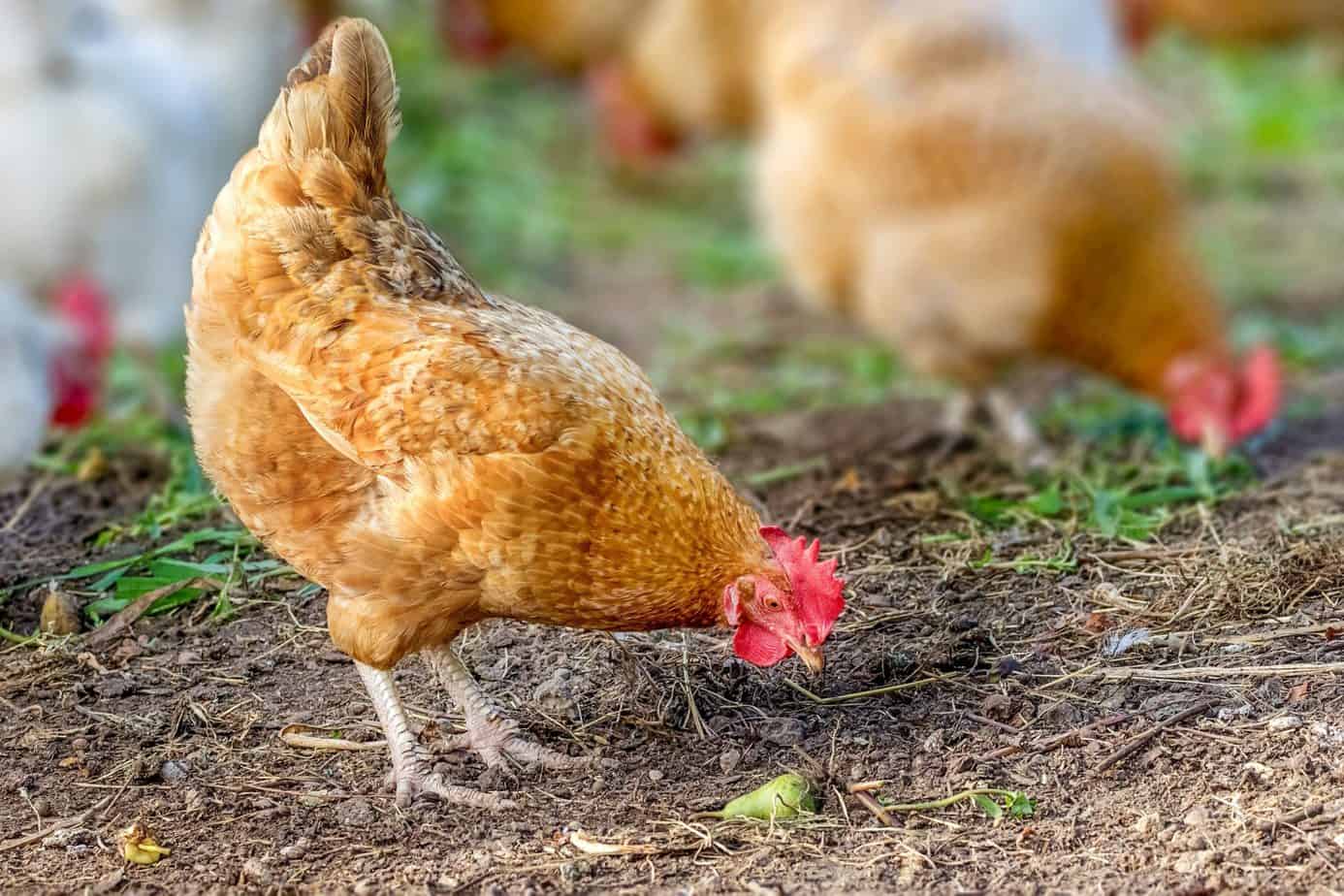If your chicken is laying small eggs and you’re having trouble determining the reason behind it, then this is the right place for you. Because in this article I’m going to talk about the reasons behind a chicken laying small eggs and the measures to take for prevention. So, first, why chickens lay small eggs?
There are several reasons behind a chicken laying small eggs starting from its health condition to its surroundings. It can be due to stress, lack of nutrition, or even due to its breed. So, according to your chicken, the reason will vary and you’ll need to find out which reasons are causing the problem in your case.
To have a better understanding of what causes this I suggest you go through the entire article till the end. After reading this article you will be able to figure out what exactly is causing your chickens to lay small eggs and what you can do about it.
Reasons Behind Your Chicken Laying Small Eggs
There are several reasons behind a chicken laying small eggs. These reasons can be due to the chicken’s internal condition like- stress, genetics, age, nutrition or it can be due to surrounding it’s provided like- a threat from hunters, temperature, lack of care, lack of fresh food, etc. So, the reasons behind laying small eggs differ from one chicken to another.
Therefore, to know why your chicken is not being able to provide you with the right size of eggs, you’ll need to go through the below-mentioned reasons and try to figure out which one is the case for your chicken.
Reason 1: Genetics
Genetics is considered to be one of the key reasons behind a chicken laying small eggs. Genetics determines a chicken’s skeletal size, which determines the size of the egg that the chicken is going to lay. Chicken that have smaller bones tend to lay smaller eggs than chickens with larger bones.
You can make sure that your chicken’s skeletal size is larger by simply feeding it plentifully before it reaches ten weeks. This way, it’ll grow to have larger bones and will provide you with larger eggs.
Reason 2: Breed
The breed is said to be another main indicator of the egg size produced by a chicken. You’ll need to know the breed of your chicken before expecting it to lay large eggs. Because not all chickens lay large eggs, it varies as chickens of some breed are proven to lay larger eggs, whereas some breeds simply don’t.
Now if the breed of your chicken is Lohmann Browns or Barnevelders or Leghorns, etc. then you can certainly expect your chicken to lay larger eggs and if it doesn’t, you’ll need to take some measures accordingly.
But if the breed of your chicken is Pekin Bantams, Brahma Bantams, etc. then you cannot expect your chicken to lay large eggs because chickens of this breed are smaller than regular size and as a result, they tend to lay smaller eggs.
Reason 3: Age
The age of chicken matters when it comes to the size of its egg because the older your chicken gets, the larger its laid eggs will get as well. Not generally, your chicken won’t be able to lay eggs until it has reached at least 6 months. After that, it’ll start laying eggs but you will only get fairy eggs until they become 9 months old. After that, you’ll be getting large eggs until it’s 3 years old.
After 3 years, even though you’ll get larger eggs, the quantity will decrease with your chicken’s age. So, you need to consider your chicken’s age before expecting large eggs from it. Also know that some say, heavier chickens take more than usual time to lay eggs. So, if your chicken is not laying any eggs, consider its age and weight first before getting worried.
In case you are getting fairy eggs, know that fairy eggs are perfectly edible and are also claimed to be tastier by some people. Though if the age is right, you are expected to want larger eggs from your chicken.
Reason 4: Nutrition
Nutrition contributes greatly to increasing the possibility of getting larger eggs. Without providing your chicken with an adequate amount of nutrition, you cannot expect proper growth, hence, you can certainly not expect larger eggs. Because the size of the egg depends upon the size of the chicken. So, make sure your chicken is getting the right amount of nutrition.
Reason 5: Disease
If you have hybrid chicken, then you won’t need to worry about any kind of disease as they are usually vaccinated. But if your chicken is of pure breed, then you’ll need to watch for signs of sickness as it will cause your chicken to lay smaller eggs.
If your chicken has diseases like- lice, worms, mites, etc. then your chicken may be affected and which will eventually affect the eggs it’ll lay. Because any kind of disease creates stress for your chicken and this later on, causes your chicken to lay eggs that are not of the right size according to its breed and growth.
How to Get Chickens to Lay Bigger Eggs?
Anyone who owns a brood of chickens would want bigger eggs. But how do you make them big? Well, there are many things that you can do to ensure your chickens lay bigger eggs. Here are a few tips –
- The bigger your hens are the bigger their eggs will be. So, adequately feed your chickens so that they can grow properly. Remember, a full-sized mature chicken will lay the bigger brown eggs. Not the smaller white ones.
- The more your chickens eat the more nutrition will reach the eggs. Which will make it bigger. So, a good practice is increasing the feeding as they reach full maturity for bigger eggs.
- Change the breed if you are not happy with the eggs of your current one. Black Australorps, Rhode Island Reds, Rhode Island Whites, Plymouth Rocks are some of the most popular chickens for laying large eggs.
- Make sure your chickens do not have any diseases. It is important to make sure your chicken doesn’t have lice, warms, or mice by getting it to check out every 30 days. But to avoid such a situation, it is suggested to get your chicken from a source that’s been cross-breeding chicken for a long time and is highly trusted. Also, make sure to take your chicken to a vet and to vaccinate it.
Providing Proper Nutrition to You Chickens
In the first 10 weeks of your chicken’s life, you’ll need to provide it with a sufficient amount of protein to ensure its skeletal growth. Because as mentioned earlier, skeletal growth is very important for a chicken to lay larger eggs. Now, to continue this growth, you’ll need to feed it pellets until it’s 16/18 weeks old. And after that, layer pellets are suggested to be fed to your chicken.
Moreover, make sure the protein level in the first few months of laying is kept around 17-20%, as it increases the size of the eggs. And after 35-36 weeks make sure to reduce their protein consumption to 14-18%. Another important thing to make sure of is to keep the number of treats to a minimum. Because too many treats will increase the weight of your chicken which will result in limited production of eggs.
Your chicken will also need to have access to oyster grit to get a sufficient amount of micronutrients and minerals. And finally, there’s no comparison of the requirement of clean fresh water when it comes to making large eggs.
Conclusion
In this article, I have not only talked about why chickens lay small eggs but also provide you with proper information on how you can get large ones. As there are several reasons, I hope you could find the reason behind your chickens laying small eggs. I hope this article was of help to you and wish you the best of luck.
Related Posts:
Can Chickens Eat Dog Food?
How Many Chickens for a Homestead – The Essential Guide

